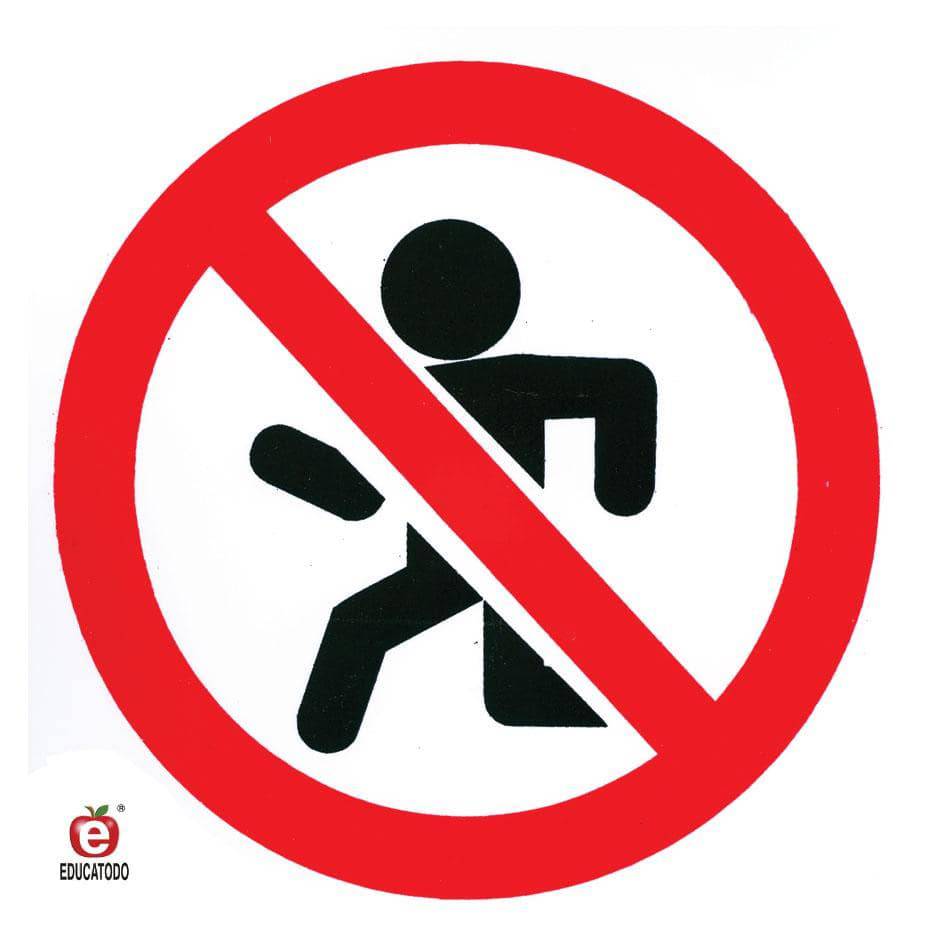Run corre corras correr corra – From the English “run” to the Spanish “correr,” the words that describe the act of running share a rich tapestry of meanings, origins, and cultural significance. Embark on a linguistic adventure as we delve into the world of run, corre, corras, and correr, uncovering their similarities, differences, and the fascinating stories they tell.
Etymology, grammar, idioms, and cultural impact—no stone will be left unturned as we explore the nuances of these captivating words. Join us on this linguistic expedition, where every step promises new insights and unexpected connections.
Definitions and Meanings
In English, “run” is a verb that means to move quickly on foot, usually with a rapid and continuous motion. “Corre” is the Spanish verb “to run” in the present tense, conjugated for the third person singular (he/she/it runs). “Corras” is the Spanish verb “to run” in the present subjunctive mood, conjugated for the second person singular (you run).
“Correr” is the Spanish infinitive form of the verb “to run.”
The English word “run” has a wider range of meanings than the Spanish verb “correr.” For example, “run” can also mean to operate or function, as in “The car runs well.” “Correr,” on the other hand, is primarily used to describe the act of moving quickly on foot.
Similarities and Differences
- Similarities:“Run,” “corre,” “corras,” and “correr” all refer to the act of moving quickly on foot.
- Differences:“Run” is an English word, while “corre,” “corras,” and “correr” are Spanish words. “Run” has a wider range of meanings than “correr,” which is primarily used to describe the act of moving quickly on foot.
Etymology and Origins

The term “run” traces its roots back to the Old English word “rinnan,” which meant “to move swiftly on foot.” This word, in turn, is believed to have originated from the Proto-Germanic word “rinnan,” which also meant “to move quickly.”
Over time, the meaning of “run” has evolved to encompass a wider range of meanings, including “to move quickly using any means,” “to operate or function,” and “to compete in a race.”
Corre, Corras, and Correr
The Spanish words “corre,” “corras,” and “correr” all share a common etymological root in the Latin word “currere,” which meant “to run.” The word “currere” is believed to have originated from the Proto-Indo-European root “*(s)ker-,” which also meant “to run.”
The meanings of “corre,” “corras,” and “correr” have remained relatively consistent over time, all referring to the act of moving quickly on foot.
Conjugations and Grammar
The verbs “run,” “corre,” “corras,” and “correr” share a common root, “corr-,” but differ in their conjugation based on tense, mood, and person. Here’s a table summarizing their conjugations:
| Tense/Mood | Person | Run | Corre | Corras | Correr |
|---|---|---|---|---|---|
| Present Indicative | Yo | run | corro | corras | corre |
| Tú | runs | corres | corras | corre | |
| Él/Ella/Usted | runs | corre | corra | corre | |
| Nosotros/Nosotras | run | corremos | corráis | corremos | |
| Vosotros/Vosotras | run | corréis | corráis | corre | |
| Ellos/Ellas/Ustedes | run | corren | corran | corren | |
| Present Subjunctive | Yo | run | corra | corras | corra |
| Tú | run | corras | corras | corra | |
| Él/Ella/Usted | run | corra | corra | corra | |
| Nosotros/Nosotras | run | corramos | corráis | corramos | |
| Vosotros/Vosotras | run | corráis | corráis | corra | |
| Ellos/Ellas/Ustedes | run | corran | corran | corran | |
| Imperative | Tú | run | corre | — | — |
| Él/Ella/Usted | run | corra | — | — | |
| Nosotros/Nosotras | run | corramos | — | — | |
| Vosotros/Vosotras | run | corred | — | — | |
| Ellos/Ellas/Ustedes | run | corran | — | — |
In general, “run” is used in English for the present tense, while “corre” is used in Spanish. “Corras” is the subjunctive form of “correr,” and “correr” is the infinitive form.
Idioms and Phrases: Run Corre Corras Correr Corra

The verbs “run,” “corre,” “corras,” and “correr” are frequently used in idioms and phrases that convey a variety of meanings. These idioms often add depth and color to language, expressing ideas in a figurative or non-literal way.
Whether you’re practicing “run corre corras correr corra” or preparing for your DMV written test, getting the right guidance can make all the difference. Check out this comprehensive guide tutor for dmv written test to ace your exam and hit the road with confidence.
Back to “run corre corras correr corra,” remember that consistent practice and focus will help you master the language.
Some common idioms and phrases using these verbs include:
Run for your life
- Meaning:To flee or escape as quickly as possible from a dangerous situation.
- Example:“When the fire broke out, we had to run for our lives.”
Run circles around someone
- Meaning:To be significantly more skilled or capable than someone else.
- Example:“Our team ran circles around the competition in the championship game.”
Run out of time, Run corre corras correr corra
- Meaning:To not have enough time to complete a task or reach a goal.
- Example:“I ran out of time to finish my project before the deadline.”
Run into someone
- Meaning:To meet or encounter someone unexpectedly.
- Example:“I ran into an old friend at the grocery store yesterday.”
Run with the pack
- Meaning:To conform to the beliefs or behaviors of a group.
- Example:“He decided to run with the pack and support the popular candidate.”
Cultural and Literary Significance
![]()
The words “run,” “corre,” “corras,” and “correr” hold significant cultural and literary value, embodying themes of movement, freedom, and transformation. They have been immortalized in literature, art, and music, evoking powerful emotions and shaping narratives across cultures.
In Literature
In literature, “run” and its Spanish counterparts have been used to convey a wide range of emotions and experiences. From the frantic escape in a thriller to the liberating journey of a protagonist, these words have captured the essence of human movement and its impact on the soul.
- In Ernest Hemingway’s “The Sun Also Rises,” the protagonist Jake Barnes’s bullfighting experience is described as a “running of the bulls,” capturing the intensity and danger of the event.
- In J.R.R. Tolkien’s “The Lord of the Rings,” the Fellowship’s journey to Mount Doom is characterized by constant running, reflecting their determination and resilience in the face of adversity.
- In Toni Morrison’s “Beloved,” the protagonist Sethe’s escape from slavery is depicted as a powerful act of defiance and self-liberation, symbolized by her relentless running.
In Art
In art, “run” and its Spanish counterparts have inspired countless paintings, sculptures, and installations. Artists have used these words to explore themes of motion, speed, and the human body in motion.
- Edvard Munch’s iconic painting “The Scream” depicts a figure with a distorted face, running in terror, conveying the anxiety and existential dread of modern life.
- Alberto Giacometti’s sculptures, such as “Walking Man I,” capture the essence of human movement, expressing the fragility and vulnerability of the human condition.
- The kinetic sculptures of Alexander Calder, such as “Three Discs: Black,” evoke a sense of motion and fluidity, inviting viewers to contemplate the dynamics of space and time.
In Music
In music, “run” and its Spanish counterparts have been used to create a sense of rhythm, energy, and movement. From traditional folk songs to contemporary pop anthems, these words have inspired countless lyrics and melodies.
- The Beatles’ song “Run for Your Life” captures the desperation and urgency of a romantic pursuit, using the word “run” to convey the protagonist’s determination.
- Bruce Springsteen’s “Born to Run” is an anthem of freedom and rebellion, with the lyrics “I wanna run away with you” expressing the desire to escape societal constraints.
- Shakira’s song “Hips Don’t Lie” incorporates the Spanish word “corre” in its chorus, creating a rhythmic and energetic dance anthem that celebrates movement and sensuality.
Questions Often Asked
What is the difference between “run” and “correr”?
While both “run” and “correr” mean “to move quickly on foot,” “run” typically implies a faster pace than “correr.” Additionally, “correr” can also be used figuratively to mean “to pursue” or “to chase.”
What is the etymology of “run”?
“Run” comes from the Old English word “rinnan,” which means “to move quickly.” It is related to the German word “rennen” and the Dutch word “rennen,” all of which share a common Indo-European root.